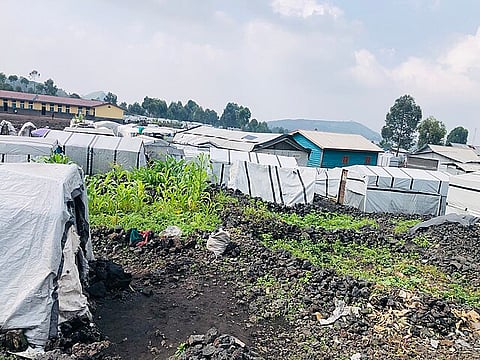

According to a joint report from the UN's Food and Agriculture Organization (FAO) and the World Food Programme (WFP), millions of people in numerous global crisis spots are at risk of famine, with severe funding shortfalls crippling the emergency response.
The UN agencies have identified 16 hunger hotspots where acute food insecurity is expected to worsen between November 2025 and May 2026. The situation is most critical in six locations where populations face an imminent risk of famine or catastrophic hunger. Another six countries are classified as being of "very high concern", such as Sudan, South Sudan, the Gaza Strip, Haiti, etc.
This widespread crisis is being driven by a confluence of factors. Conflict and violence remain the single biggest driver of hunger, identified as a primary cause in 14 of the 16 hotspots. In Sudan, for example, conflict has directly led to confirmed famine conditions in areas like Al Fasher. These man-made crises are compounded by economic shocks and climate extremes, such as droughts and floods, which destroy livelihoods and destabilize food production. The situation is being pushed past the breaking point by a severe shortfall in humanitarian funding. As of late October 2025, only $10.5 billion of the $29 billion needed to assist those most at risk has been received.
The massive funding gap has forced aid agencies into making impossible choices. The World Food Programme has had to significantly tighten targeting, reducing rations for refugees and displaced persons. In some countries, critical programs like nutrition assistance and school meal plans have been suspended, placing children and vulnerable families at extreme risk. The FAO also warns that efforts to protect agricultural livelihoods—which are crucial for stabilizing food production and preventing future crises—are under threat due to the lack of resources. Without these supports, communities cannot plant crops or protect their livestock, ensuring that the hunger crisis will deepen in the coming months.
UN agency leaders stress that famine is predictable and preventable, but the window to act is narrowing. They call for a multi-pronged approach: immediate humanitarian assistance to save lives, "anticipatory action" that intervenes before crises escalate, and greater investment in long-term resilience to tackle the root causes of hunger. Above all, they emphasize that safe and unimpeded humanitarian access is a critical necessity in conflict zones to allow life-saving aid to reach those in need. As WFP Executive Director Cindy McCain stated, "We have the tools and the knowledge to prevent it, but we need the resources and the political will to act now".